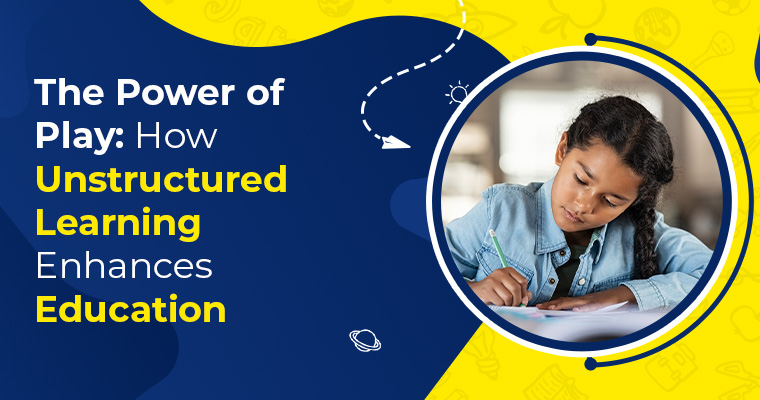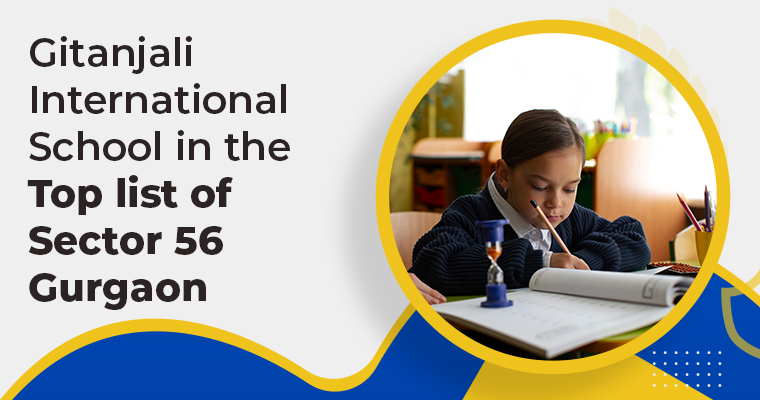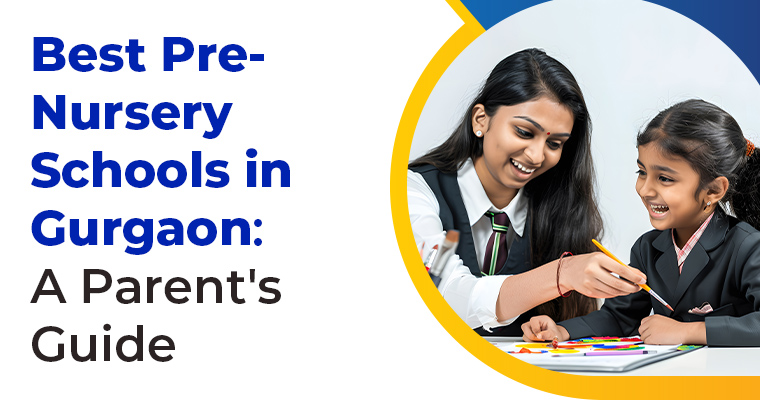
For Gurgaon top schools, the pressure to meet academic goals often overshadows playtime. However, research shows that unstructured play is vital for a child’s growth. This child-led activity supports learning. It lays the groundwork for lifelong education. But how should this be balanced? Well, good schools always make learning fun through play. They offer a mix of playtime along with smart learning opportunities.
Play and Development: How Play Boosts Learning
Unstructured play is where kids play without adult rules or goals. It may seem simple but brings many benefits. It helps children grow in different areas:
- Cognitive Development
During play, children use creativity and imagination. They build stories and scenarios. It builds critical thinking and problem-solving skills. Activities like building with blocks or playing “doctor-doctor” require planning and adapting to changes. These skills are vital for future academic success.
- Social and Emotional Development
Play offers a safe space for kids to learn social skills. They learn to cooperate, share, take turns, and solve conflicts. By playing different roles, they understand others’ perspectives. They build empathy towards others. Play also helps them express emotions and build confidence. It helps them develop resilience.
- Physical Development
Unstructured play encourages kids to move and explore. Running, jumping, climbing, and building with blocks improve motor skills. These activities enhance coordination, balance, and strength! It promotes a healthy and active lifestyle.
The Magic of Imagination
Unstructured play offers more than just basic development. It creates a rich learning environment with many benefits:
- Intrinsic Motivation
Playing is fun. When kids explore their interests during play, they develop a love for learning. This joy of discovery motivates them to learn throughout their lives.
- Self-Directed Learning
Unstructured play teaches kids to make choices. They try new ideas and learn from mistakes. This independence helps them take charge of their learning. It is a skill useful in school and beyond.
Learning Through Trial and Error
Play lets kids take risks and learn from failures. They face challenges and solve problems on their own. This process builds resilience and resourcefulness, key traits of successful learners.
Play fuels curiosity and the desire to explore. Kids ask questions. They try different approaches, and enjoy learning new things. This fosters a growth mindset. At top CBSE schools in Gurgaon challenges become opportunities for learning.
Bringing Play into the Classroom: Encouraging Exploration
Integrating unstructured play into a structured learning environment requires a change in teaching approach. Here are some simple ways to include play in education:
Scheduled Playtime
Regularly schedule time for free play. It is necessary both inside and outside the classroom. Provide a variety of materials such as blocks, dress-up clothes, and art supplies. These items encourage children to be creative and imaginative during their playtime.
Play-Based Learning
Use play to help children learn important concepts. For example:
- Reenact Historical Events: Let children act out historical events to make history come alive. This helps them understand and remember what they learn.
- Build Scientific Models: Encourage children to create models of scientific phenomena. This hands-on approach makes complex ideas easier to grasp.
- Create Stories: Have children invent and tell stories to practice their language skills. This tickles their creativity and improves their communication abilities.
Observation and Guidance
Teachers can play an important role by observing children during play. This helps them understand each child’s interests and strengths. Watch how children interact and what they enjoy. This way teachers can offer subtle guidance and support. For example:
- Join the Play: Sometimes, a teacher can join in the play to introduce new ideas or challenges.
- Ask Questions: Asking open-ended questions can stimulate thinking and encourage deeper exploration.
- Provide Resources: Teachers can provide additional materials or activities based on what they observe. These are specially made to align with the children’s interests.
Building Lifelong Skills
Skills developed through unstructured play, such as creativity, critical thinking, problem-solving, collaboration, and resilience, are essential for success in all areas of life. Play can help children become lifelong learners who can tackle challenges and seize opportunities.
Unstructured play is not just a fun activity! It is the foundation of a well-rounded education. It is a foundation for lifelong learning and growth. Let’s ensure every child has the chance to enjoy this playground of possibilities.To Know More About Gitanjali International School CBSE Schools In Gurgaon With Fee Structure, Click Now!







